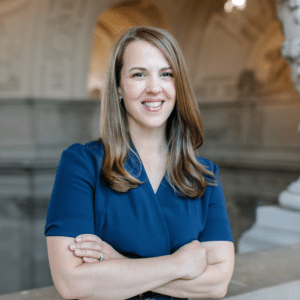By ProFellow Founder, Dr. Vicki Johnson
As you’re embarking on your short-term fellowship this summer, you may be wondering how you can turn this opportunity into a permanent job. Whether you are returning to school this fall and thinking about post-graduation employment, or are looking for an opportunity to begin as soon as you complete your fellowship, here are 6 ways to leverage your summer fellowship for long-term employment opportunities.
1. Connect with everyone you meet through LinkedIn
Personal introductions are the key to landing jobs today. But if you don’t personally know someone who works at an organization with a great job opening, it can be difficult to get noticed through the normal application channels. This is where LinkedIn comes in. LinkedIn.com is the world’s most popular professional networking platform. LinkedIn provides you a page where you can create and update your public resume and connect with colleagues, associates and friends. When you connect with someone on LinkedIn, you can view their professional network and ask for introductions to their connections at companies and organizations you are interested in. Your summer fellowship is the ideal time to make connections. Connect via LinkedIn with everyone you meet – your colleagues, the fellowship staff, those in your fellowship cohort, and people you meet at conferences, events and happy hours. They might have the connection you need for a personal introduction to future employers.
2. Use your fellowship title to request informational interviews at related organizations and companies
An informational interview is a meeting where you, a potential job seeker, seeks advice on your career path, the industry, and the corporate culture of a potential workplace. The conversation is not about hiring and not about a specific job; however, it is a great way to get insights on the organization and make personal contacts that can very useful when applying to future job openings there. For example, if you are participating in a summer public policy fellowship in Washington, DC, you could request informational interviews with other local policy organizations, think tanks and legislative staff working in your specific field. Mentioning that you are a fellow in these requests, and using your fellowship network for personal introductions to staff, is hugely helpful in landing these meetings. Remember to keep the meetings brief and have specific questions lined up.
3. Publicize your work
Publications enhance your public profile and make you an attractive job candidate. They also help connect you to leaders in your field. Use your fellowship opportunity to publish journal articles, white papers, op-eds on reputable media sites, articles on your host organization’s website, or articles on the fellowship program’s website. Share your publications on your LinkedIn profile, on social media, and in related online forums.
4. Ask your host organization and fellowship organization for speaking opportunities
Most fellows don’t consider directly asking for speaking opportunities. However, your host organization and fellowship program likely host or participate in a variety of events and conferences and may be seeking people interested in speaking. Typically, a fellowship program will reach out the alumni to offer speaking opportunities. Make your interest in speaking known early in the fellowship, and let them know you are also happy to help with the logistics of applying for speaking opportunities. Like publications, speaking opportunities enhance your public profile and your resume, and events and conferences are great places to connect with future employers.
5. Leverage the fellowship alumni network while you are a fellow
Many fellows don’t engage with their fellowship program’s alumni network until they are an alumnus themselves. Don’t wait to take advantage of this unique network. Many alumni are working in organizations where you’d like to land a job, so not only can they make personal introductions to future employers, they can show you the ropes on job seeking and developing a strong job application, as well as suggest ways to get the most out of your current fellowship. Even if the program has an alumni database, connect with alumni on LinkedIn.
6. Ask your host organization about permanent job opportunities there
If you’re looking for a job to begin this fall, ask your host organization early in the fellowship about potential job opportunities there. If you do exceptional work during your fellowship and prove you are a big value add to the organization, they may create a position for you. If you still have a year of school left to complete, certainly let them know of your intentions for seeking a permanent job after graduation and ask specifically what types of skills and expertise they need so you can work on gaining these skills during your fellowship and academic year. Check in with them every 2-3 months about opportunities coming down the pipeline.
Need more advice on using LinkedIn? See our article LinkedIn for Fellowship Seekers: Find Fellowships, Affiliations and Former Fellows.

Dr. Vicki Johnson is Founder and CEO of ProFellow, the world’s leading online resource for professional and academic fellowships. She is a four-time fellow, top Ph.D. scholar, Fulbright recipient and an award-winning social entrepreneur. She is the Creator and Director of Fully Funded, an award-winning online course and mentorship program for graduate school applicants seeking to find and win full funding.
© Victoria Johnson / ProFellow, LLC 2017, all rights reserved.
